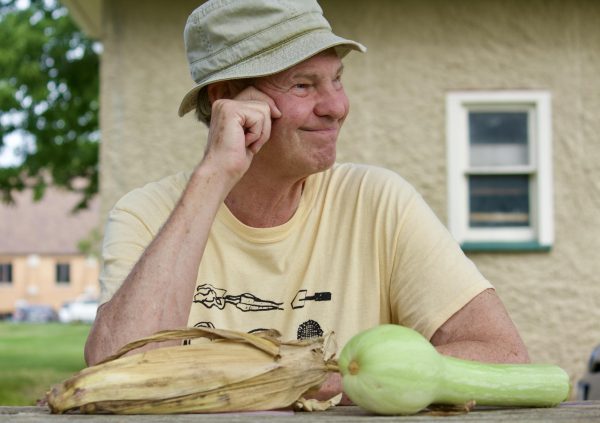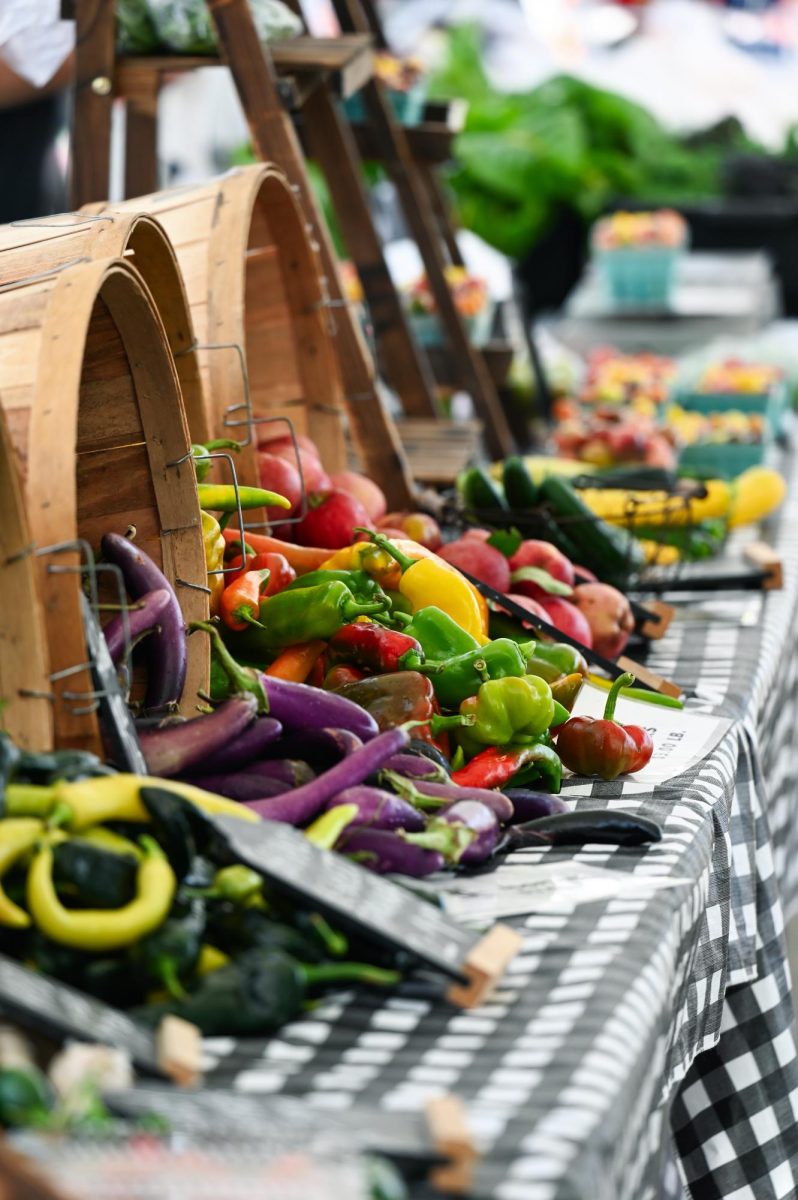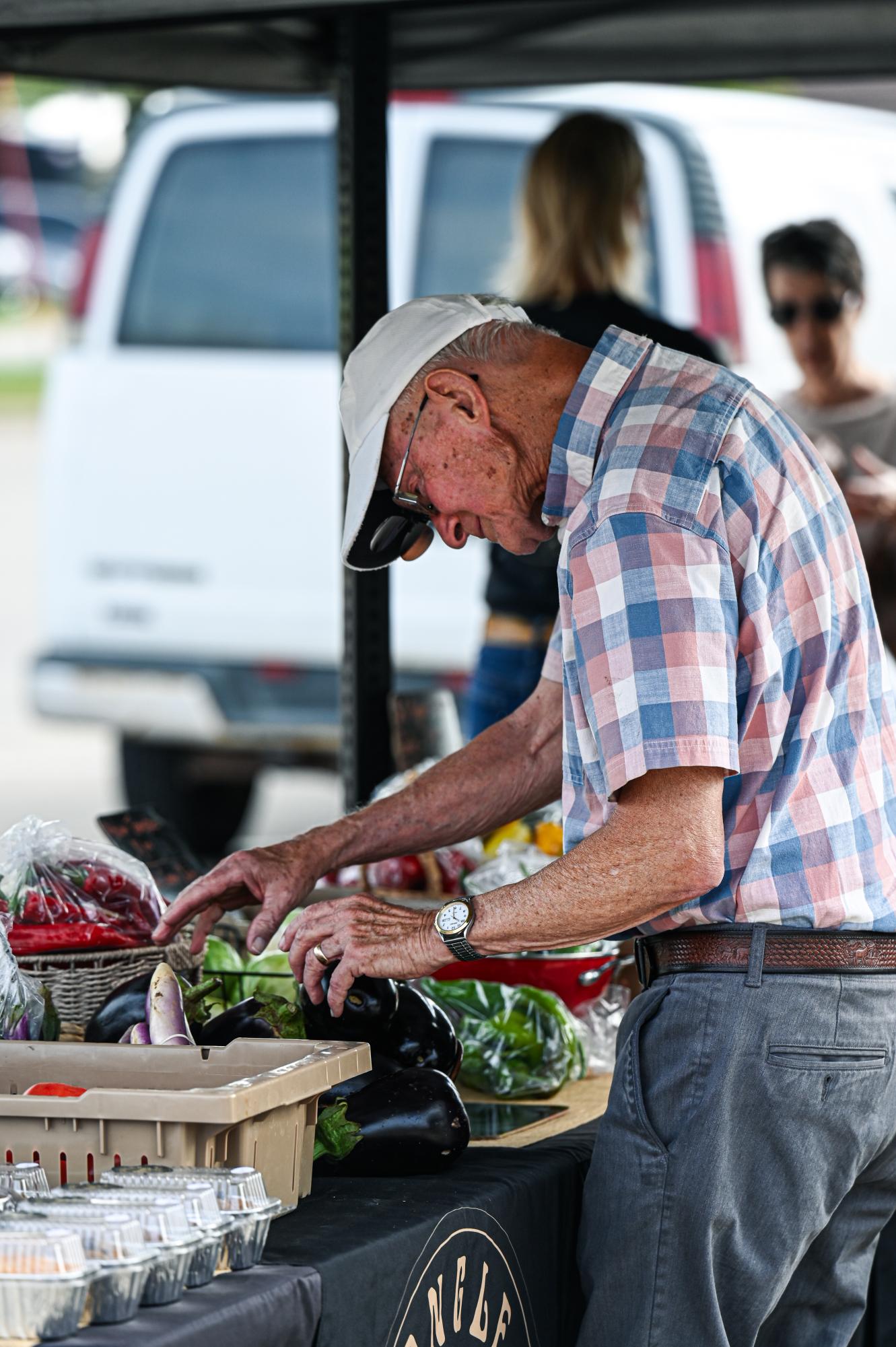Students can continue looking forward to an assortment of locally sourced foods in the Dining Hall’s daily offerings. Dining Services has said they are working to increase connections with local suppliers and incorporate more local, sustainable products in their selections.
According to Jeanette Moser, director of Dining Services, the practice of sourcing food locally has been a priority for at least 29 years — “as long as I’ve been at Grinnell.” In an email to The S&B, she wrote that while the College relies mainly on distributors like Sysco of Iowa or Martin Brothers, purchasing locally allows Dining Services to know where exactly food is coming from, as well as “actively support the community we’re all part of.”
“All of our eggs, tofu, milk, honey, herbs, beef, and chicken thighs come from local sources,” she wrote. “We make a concerted effort to purchase local produce that is in season.”
Moser added that Lonn Lease, assistant director of Dining Services regularly networks with local farmers and distributors, allowing Dining Services to learn about current offerings in the community and tailor orders to their specific needs.

As part of the College’s Welcome Week festivities, for instance, students, staff and those associated with the College were treated to a Local Harvest Dinner on Sept. 11 in Dining Hall. Dishes, ranging from beef burgers to mashed potatoes and homemade popcorn, were prepared with ingredients sourced from local farms.
“I feel like they make an effort to reach out and give us some business, which we appreciate very much,” said Kerri Olson, co-owner of Olson Garden Market, which delivers to the College once every few weeks.
Olson, whose farm is small and has limited means for mass production, said the relationship with the College was casual and friendly.
“I let them know if I have a lot of one thing, and then they can think about if they can put it on the menu,” she said. “We can offer some of our specialty stuff like heirloom tomatoes. They ripen really fast so it would be hard to order that off a truck, and I just have to drive four miles.”
Jake Gratzon, co-founder of Old Capitol Tofu, explained that because the College itself runs the Dining Hall as opposed to other colleges that hire management companies to run their dining halls, “You get to have a lot more input and say in the character and quality of the food.”
Having delivered weekly to the College for nearly eight years, he said, “We’re always looking to let students know that their tofu is local and that it’s really good quality.”
“By purchasing locally, we’re investing in our local economy and helping it grow, while also reducing the environmental impact that comes with long-distance transportation,” wrote Moser. However, she added that Dining Services was also limited by the unpredictability of the harvest season and the availability of storage facilities for harvested food.
“They [Dining Services] don’t have to worry with Sysco because Sysco is sourcing from so many different growers,” explained Jon Andelson, professor of anthropology and supervisor of the Grinnell College Garden, which he helped found in 2000. Pointing to the harms of ultra-processed food and intensive agricultural equipment, he said that he felt the College could afford to buy more local and organic produce than they currently do.
“Companies keep consolidating, and they just get larger and larger,” said Gratzon. “Finding those relationships where both sides really care about the integrity of the food is increasingly rare … I would love to see more opportunities for students to connect with food, to know what they’re eating.”
Moser wrote that Dining Services only provides local produce that they can consistently supply to all students while still being “good stewards of our budget,” especially as they can be “two to four times the cost of non-local options.”
“We offer local foods every day!” she wrote. “We realize we could do a better job of highlighting these offerings, and we’re working on ways to share more about what’s local on our menu.”
Back at the College Garden, Andelson teaches student workers and volunteers the basics of growing locally — last year, 90 percent of their 1500-pound harvest went to the Dining Hall at no cost. He maintained that local food has to be part of the picture to correct unsustainability in the food system.
“Organic food, diversified farms, smaller farms, more people on the land rather than fewer … It’s going to be a tremendous uphill fight, but we’ve got to try,” he said. “Because it’s definitely an unhealthy direction — for the land, our bodies and society.”







